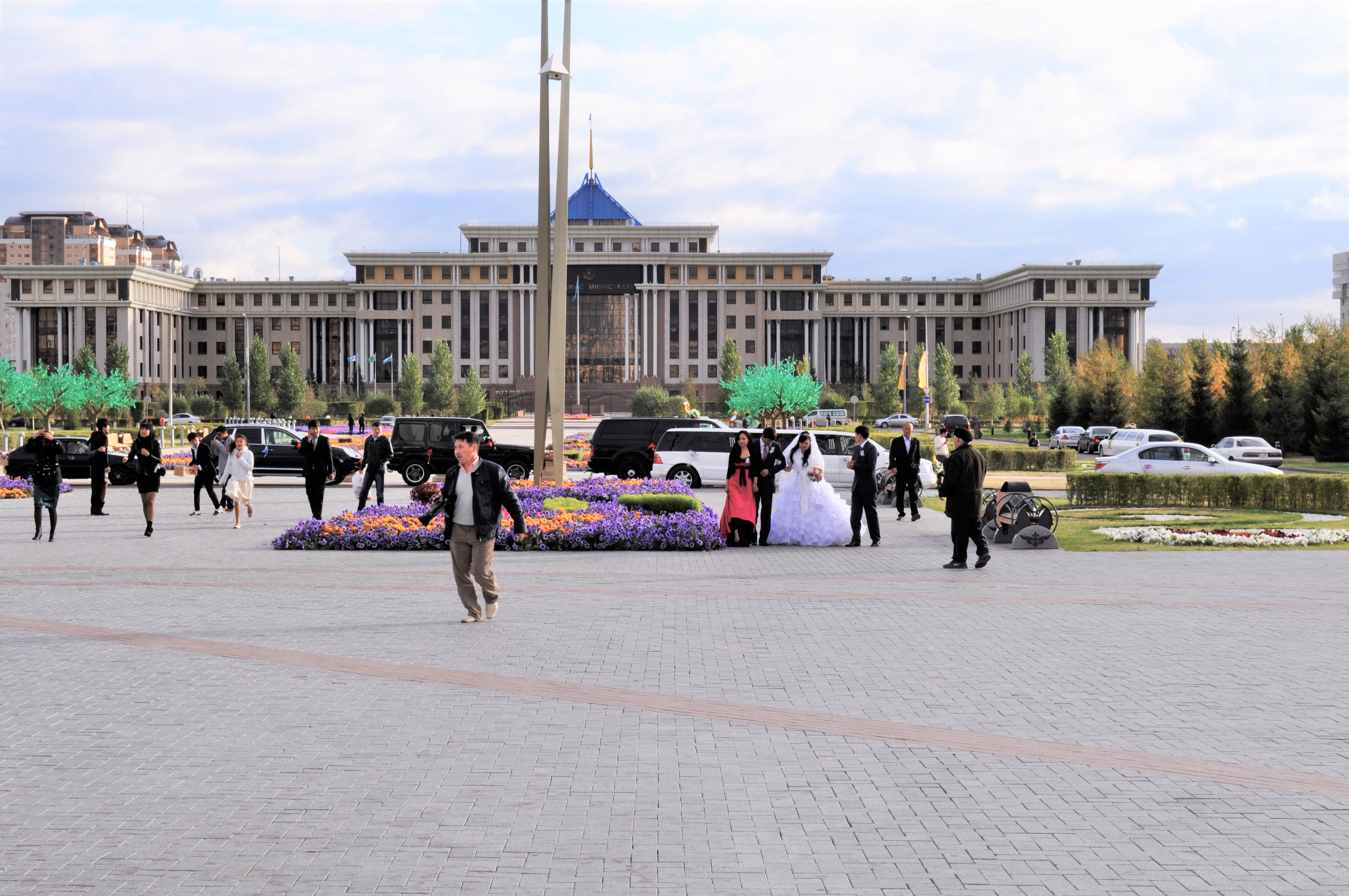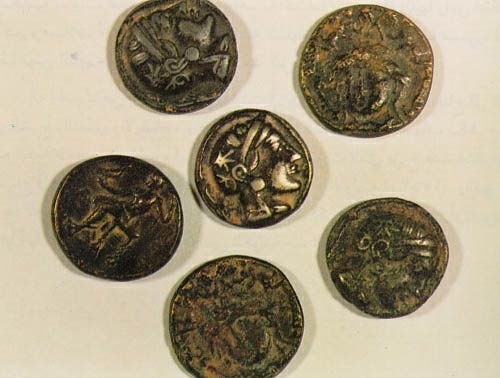|
Politics Of Kuwait
Kuwait is an emirate in the Persian Gulf region with an autocratic political system. The Emir of Kuwait, a hereditary monarch from the Al Sabah ruling family appoints the prime minister (who is always a royal) and other members of government, as well as members of judicial, police and financial institutions. Kuwait is a wealthy rentier state. In contrast to other autocracies in the Gulf region, Kuwaiti politics has historically been more liberal, as citizens have more substantial civic and political rights. Kuwaitis vote in elections, criticize officials, and regularly organize protests. Kuwaiti civil society criticizes the corruption and opulence of the royal government. There is nominally elected parliament that frequently clashes with the royal government. The parliament has frequently been dissolved by the royal government, most recently in 2024. Constitution The Constitution of Kuwait was ratified in 1962 and has elements of a presidential and parliamentary system of go ... [...More Info...] [...Related Items...] OR: [Wikipedia] [Google] [Baidu] |
Kuwait
Kuwait, officially the State of Kuwait, is a country in West Asia and the geopolitical region known as the Middle East. It is situated in the northern edge of the Arabian Peninsula at the head of the Persian Gulf, bordering Iraq to Iraq–Kuwait border, the north and Saudi Arabia to Kuwait–Saudi Arabia border, the south. With a coastline of approximately , Kuwait also shares a maritime border with Iran, across the Persian Gulf. Kuwait is a city-state, most of the country's population reside in the urban area, urban agglomeration of Kuwait City, the capital and largest city. , Kuwait has a population of 4.82 million, of which 1.53 million are Kuwaiti nationality law, Kuwaiti citizens while the remaining 3.29 million are Expatriates in Kuwait, foreign nationals from over 100 countries. Kuwait has the world's third List of sovereign states by immigrant and emigrant population, largest number of foreign nationals as a percentage of the population, where its citizens make up less th ... [...More Info...] [...Related Items...] OR: [Wikipedia] [Google] [Baidu] |
Ministry Of Defence
A ministry of defence or defense (see American and British English spelling differences#-ce.2C -se, spelling differences), also known as a department of defence or defense, is the part of a government responsible for matters of defence and Military, military forces, found in Sovereign state, states where the government is divided into Ministry (government department), ministries or departments. Such a department usually includes all Military branch, branches of the military, and is usually controlled by a defence minister or secretary of defense. The role of a defence minister varies considerably from country to country; in some the minister (government), minister is only in charge of general budget matters and procurement of equipment, while in others they are also an integral part of the operational military chain of command. Historically, such departments were referred to as a ministry of war or department of war, although they generally had authority only over the army of ... [...More Info...] [...Related Items...] OR: [Wikipedia] [Google] [Baidu] |
Political Issues In Kuwait
Important political issues in Kuwait include rights for immigrant workers, stateless people, and education reform. Kuwait has the largest number of stateless people in the entire region. The Bedoon issue in Kuwait is largely sectarian. Foreign workers Since the 1970s, the Kuwaiti government annually announces that Kuwait will reduce the number of expatriates. Human rights organizations frequently criticize Kuwait for the human rights abuses toward foreign nationals. Foreign nationals account for 70% of Kuwait's total population. The kafala system leaves foreign nationals prone to exploitation. Administrative deportation is very common in Kuwait for minor offenses, including minor traffic violations. Kuwait is one of the world's worst offenders in human trafficking. Hundreds of thousands of foreign nationals are subjected to numerous human rights abuses including inhumane conditions of involuntary servitude by employers in Kuwait. They are subjected to physical and sexual abuse, ... [...More Info...] [...Related Items...] OR: [Wikipedia] [Google] [Baidu] |
History Of Kuwait
Kuwait is a sovereign state in Western Asia located at the head of the Persian Gulf. The geographical region of Kuwait has been occupied by humans since antiquity, particularly due to its strategic location at the head of the Persian Gulf. In the pre-oil era, Kuwait was a regional trade port. In the modern era, Kuwait is best known for the Gulf War (1990–1991). Antiquity Mesopotamia Following the post-glacial flooding of the Persian Gulf basin, debris from the Tigris–Euphrates river system, Tigris–Euphrates river formed a substantial delta, creating most of the land in present-day Kuwait and establishing the present coastlines. One of the earliest evidence of human habitation in Kuwait dates back to 8000 BC where Mesolithic tools were found in Burgan field, Burgan. During the Ubaid period (6500 BC), Kuwait was the central site of interaction between the peoples of Mesopotamia and Neolithic Eastern Arabia, including Bahra 1 and H3 (Kuwait), site H3 in Subiya, Kuwait, Subiya ... [...More Info...] [...Related Items...] OR: [Wikipedia] [Google] [Baidu] |
Government Of Kuwait
Kuwait is an emirate. The Emir of Kuwait, a hereditary monarch from the Al Sabah ruling family appoints the prime minister (who is always a royal) and other members of government, as well as members of judicial, police and financial institutions. Executive branch The Constitution of Kuwait was approved and promulgated on 17 November 1962. Government The prime minister chooses the cabinet of ministers, which form the government. The prime minister is a member of the ruling family and is appointed by the Emir. Emir Current Emir: Mishal Al-Ahmad Al-Jaber Al-Sabah Current Crown Prince: Sabah Al-Khalid Al-Sabah Judicial branch The judiciary in Kuwait is not independent of the government, the Emir appoints all the judges and many judges are foreign nationals from Egypt. In each administrative district of Kuwait, there is a Summary Court (also called Courts of First Instance which are composed of one or more divisions, like a Traffic Court or an Administrative Court); then th ... [...More Info...] [...Related Items...] OR: [Wikipedia] [Google] [Baidu] |
Ministry Of Information (Kuwait)
The Ministry of Information () is one of the governmental bodies in the State of Kuwait. It was established on 7 January 1979. The ministry is currently held by Abdulrahman Badah Al Mutairi. The Ministry operates the official radio and television of the State of Kuwait. Television Kuwait Television * KTV1 * KTV2 * KTV Sport * KTV Sport Plus * KTV Kids * Al Qurain channel * Al Araby Channel * Ethraa Channel * almajles channel Radio * Radio Kuwait 1 * Kuwait Radio 2 * Kuwait Radio Quran * Kuwait FM * Easy FM 92.5 * Radio Classical Arabic * Radio Hona Kuwait * Radio Shaabya * SuperStation References External links * {{Kuwait-stub 1979 establishments in Kuwait Information Kuwait Kuwait, officially the State of Kuwait, is a country in West Asia and the geopolitical region known as the Middle East. It is situated in the northern edge of the Arabian Peninsula at the head of the Persian Gulf, bordering Iraq to Iraq–Kuwait ... Mass media in Kuwait Ministries ... [...More Info...] [...Related Items...] OR: [Wikipedia] [Google] [Baidu] |
Ministry Of Social Affairs (Kuwait)
The Ministry of Social Affairs, previously known as the Ministry of Social Affairs and Labour, is one of the ministries of the State of Kuwait. The current Minister is Mai Jassem Al-Baghli. History On December 14, 1954, Sheikh Abdullah Al-Salem Al-Sabah issued a decision of the Supreme Executive Committee under No. (T. 63/41) to establish the Department of Social Affairs, and on January 17, 1962, in accordance with Amiri Decree No. 2 of 1962, the name of the department was changed to “Ministry of Social Affairs and Labour” until the issuance of Law No. 109 of 2013, which stipulates the separation of the labour sector from the ministry and the change of the ministry’s name to (Ministry of Social Affairs), the State of Kuwait established the Public Authority for Manpower to assume all responsibilities related to the labour sector since its inception to this day. Tasks The Department of Social Affairs seeks to achieve social welfare for all citizens, provide social servi ... [...More Info...] [...Related Items...] OR: [Wikipedia] [Google] [Baidu] |
Ministry Of Trade And Industry
A ministry of trade and industry, ministry of commerce, ministry of commerce and industry or variations is a ministry that is concerned with a nation's trade, industry and commerce. Notable examples are: List *Algeria: Ministry of Industry and Mines *Australia: ** Minister for Trade and Investment (Australia) ** Minister for Trade, Tourism and Major Events (New South Wales) *Azerbaijan: ** Ministry of Industry and Energy (Azerbaijan) ** Ministry of Defence Industry of Azerbaijan ** Ministry of Economic Development (Azerbaijan) *Brazil: Ministry of Development, Industry and Foreign Trade (Brazil) *Brunei: ** Ministry of Energy, Manpower and Industry ** Ministry of Finance and Economy (Brunei) ** Ministry of Primary Resources and Tourism *Botswana: ** Ministry of Trade and Industry (Botswana) *Cambodia: Ministry of Industry, Mining and Energy (Cambodia) *Canada: ** Innovation, Science and Economic Development Canada ** Minister of International Trade (Canada) **Manitoba ** ... [...More Info...] [...Related Items...] OR: [Wikipedia] [Google] [Baidu] |
Ministry Of Public Works ...
This list indicates government departments in various countries dedicated to public works or infrastructure. See also * Public works * Ministry or Board of Public Works, the imperial Chinese ministry overseeing public projects from the Tang dynasty to the Qing * Ministry of Works (other) {{Types of government ministers Public works Public works are a broad category of infrastructure projects, financed and procured by a government body for recreational, employment, and health and safety uses in the greater community. They include public buildings ( municipal buildings, ... [...More Info...] [...Related Items...] OR: [Wikipedia] [Google] [Baidu] |
Ministry Of Education
An education ministry is a national or subnational government agency politically responsible for education. Various other names are commonly used to identify such agencies, such as Ministry of Education, Department of Education, and Ministry of Public Education, and the head of such an agency may be a minister of education or secretary of education. Such agencies typically address educational concerns such as the quality of schools or standardization of curriculum. The first such ministry ever is considered to be the Commission of National Education (, ), founded in 1773 in the Polish–Lithuanian Commonwealth. Following is a list of education ministries by country: Africa * Ministry of National Education (Algeria) * Ministry of Education (Egypt) * Ministry of Education (Ethiopia) * Ministry of Education (Ghana) * Ministry of Education (Kenya) * Ministry of Education (Namibia) * Nigeria: :* Federal Ministry of Education (Nigeria) :* Rivers State: Rivers State Ministry o ... [...More Info...] [...Related Items...] OR: [Wikipedia] [Google] [Baidu] |
Ministry Of Health (Kuwait)
The Ministry of Health is the ministry responsible for the public health of citizens and residents of the State of Kuwait and for drawing up the health policy plan in Kuwait. It was established in 1936, and is now headed by Dr. Ahmad Abdulwahab Al-Awadhi. Ministry history The health care system in the State of Kuwait began as a modern regulatory law in 1944, when Sheikh Ahmad Al-Jaber Al-Sabah issued a law that included fourteen articles that included the organizational matters of the Health Department of the Health Council in addition to the powers of the administrative director of the department and the powers of the technical director (chief physician) of health during that period. In 1939, the first governmental health clinic was opened in Kuwait and later became for men and another clinic for women was built, while in 1944 it was the first private clinic for women. In 1944, Dr. Hikmat Al-Khaja was assigned by the department to take charge of the health of school student ... [...More Info...] [...Related Items...] OR: [Wikipedia] [Google] [Baidu] |


